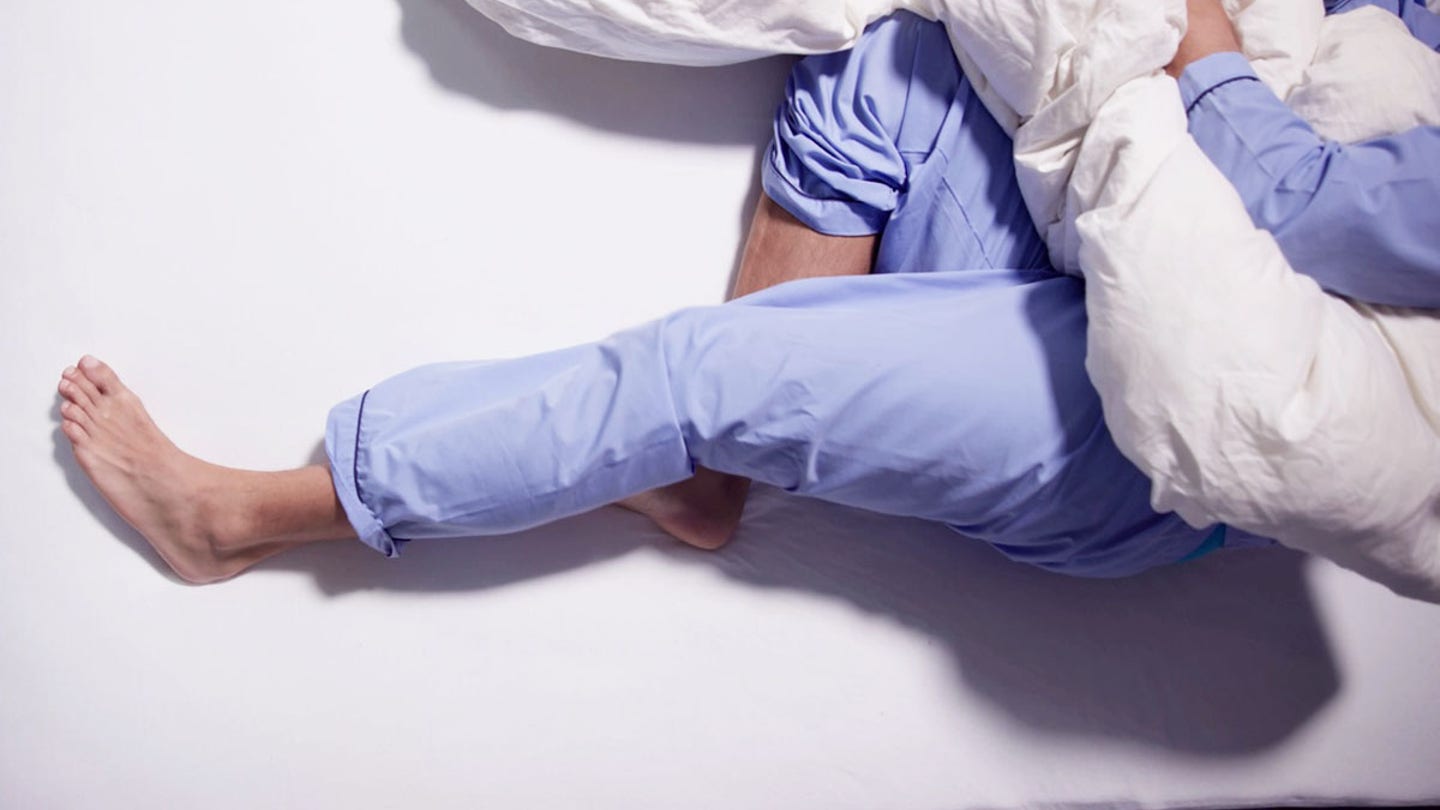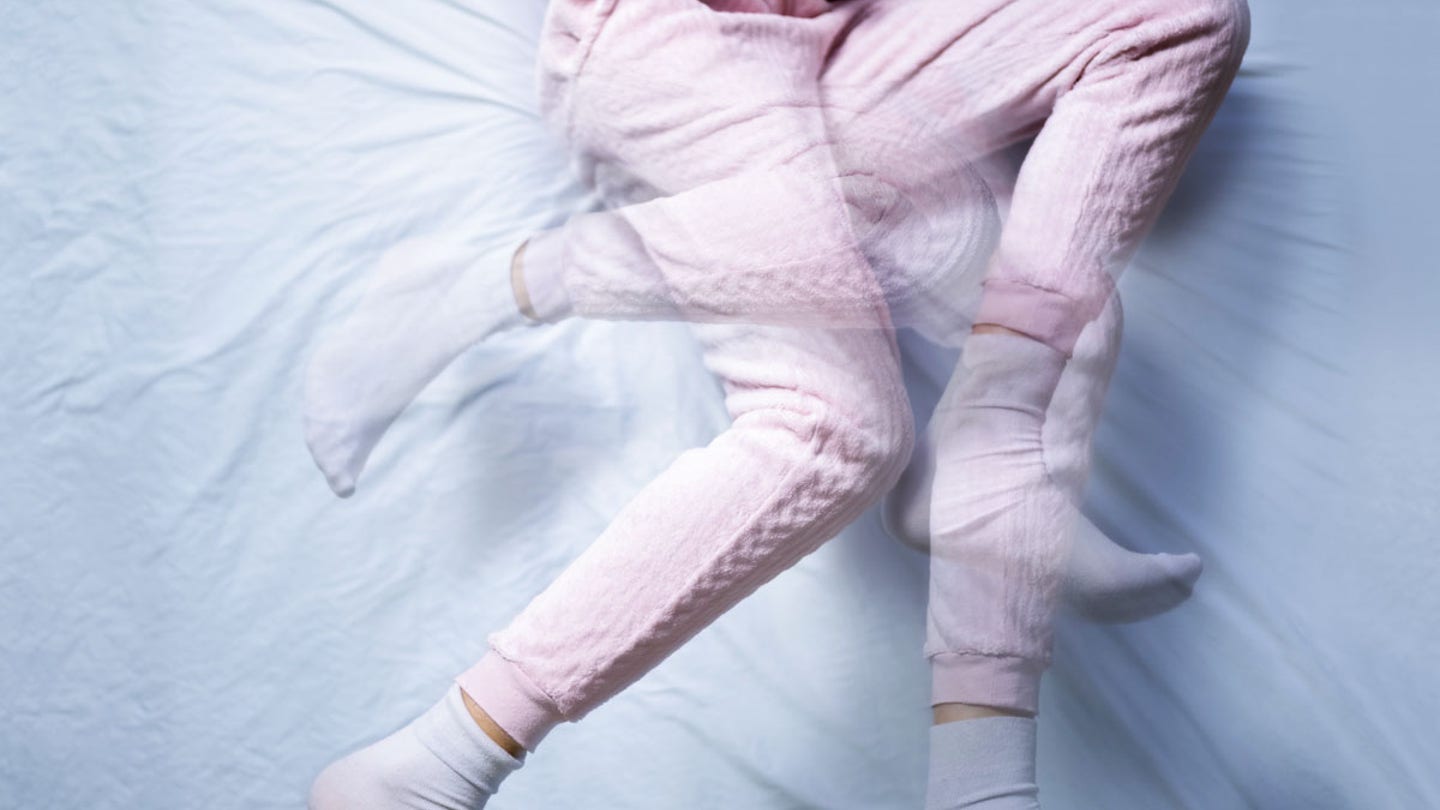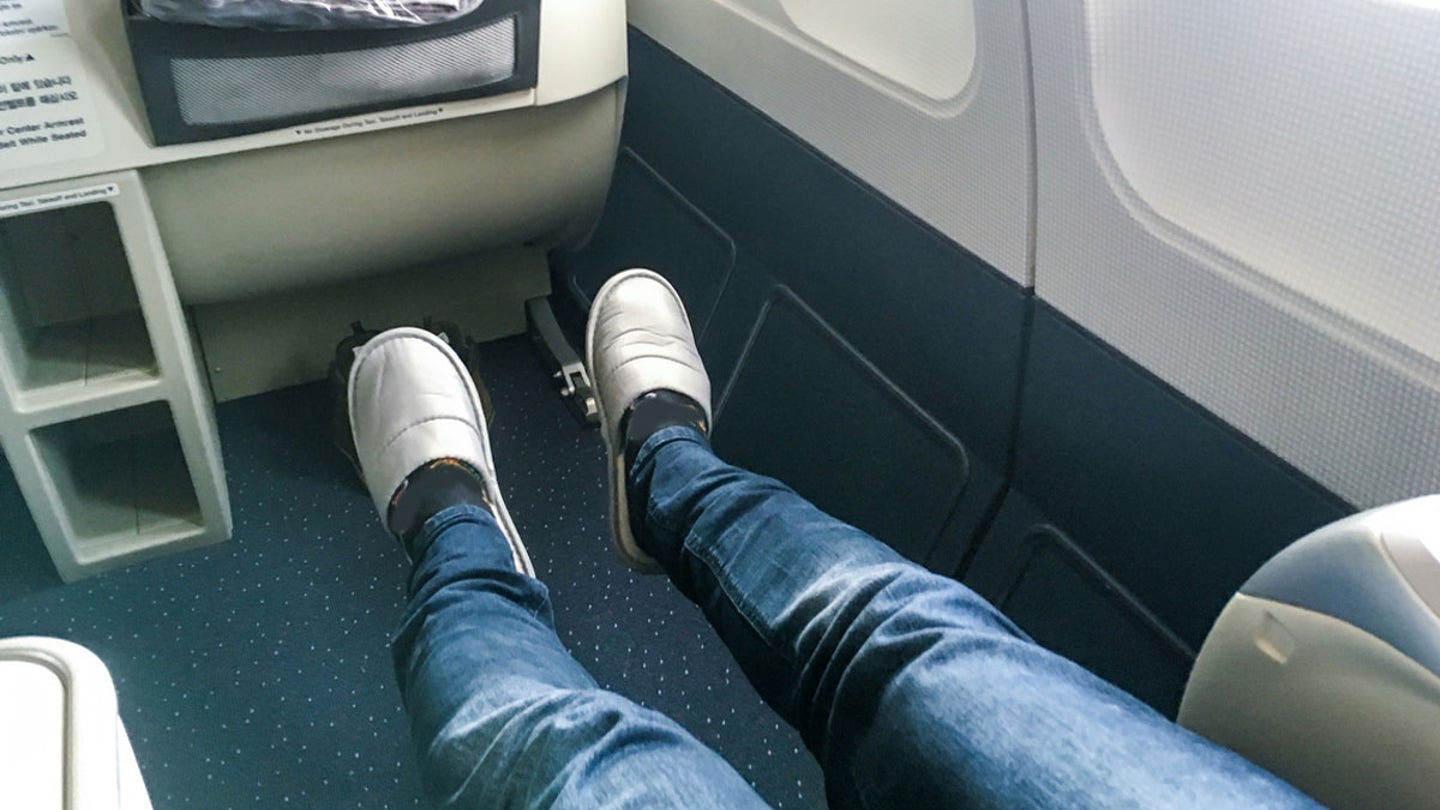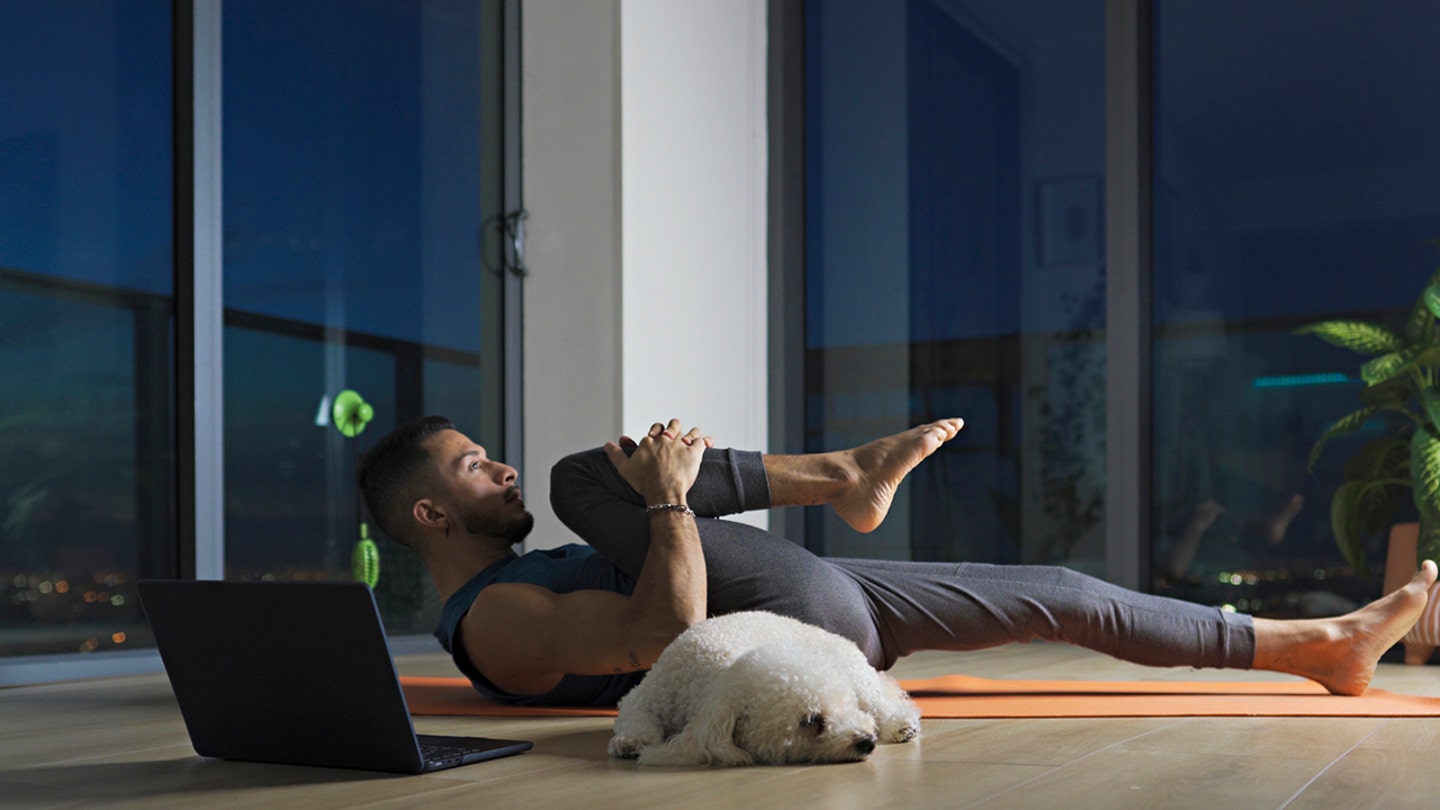For some people, sleepless nights can be caused by racing thoughts, reactions to caffeine or overstimulation from using devices too close to bedtime.
But for those affected by restless legs syndrome (RLS), getting quality rest can seem impossible.
RLS is a nervous system condition that causes an irresistible urge to move the legs, often accompanied by tingling, pain, numbness or a sensation of “pulling.”
‘HOW MUCH SLEEP IS TOO MUCH?’ ASK A DOCTOR
Fox News Digital spoke to two medical doctors to learn more about the condition, as well as ways to reduce the triggers and symptoms.
RLS is a medical condition that causes an irresistible urge to move the legs, often accompanied by tingling, pain, numbness or a sensation of “pulling.” (iStock)
What to know about restless legs syndrome
Restless legs syndrome is a neurological condition that results in the uncomfortable urge to move the legs.
“This usually happens in the evening or night when someone is sitting or lying down, but can happen anytime someone is sitting for a prolonged period of time, like riding in a car or a plane,” Beth Oller, M.D., a family physician with Rooks County Health Center in Stockton, Kansas, told Fox News Digital. “This interferes with sleep and rest.”
THE TOP 5 WORRIES — AND 5 WORST SLEEP HABITS — THAT ARE KEEPING AMERICANS UP AT NIGHT
RLS affects between 7% and 10% of the United States population.
It is more common among women and the risk increases with age, according to Cleveland Clinic.

RLS affects between 7% and 10% of the United States population. It is more common among women and the risk increases with age. (iStock)
The condition is known as early-onset RLS when the diagnosis is made before age 45. This type tends to run in families and progresses slowly, according to Oller.
Late-onset RLS begins after age 45 and progresses more quickly.
Symptoms and causes
An uncomfortable sensation in the legs that leads to the urge to move them is the main symptom of RLS.
“This is often described as a tingling or itching sensation, a crawling, creeping sensation, or aching and throbbing,” Oller said.
“These sensations are most commonly in the calf area, and sensations get worse when you’re resting.”
TO IMPROVE YOUR SLEEP, DO THIS ACTIVITY BEFORE BED, EXPERTS SUGGEST
Although symptoms are usually most noticeable in the evening, they can occur when sitting for a prolonged period of time.
The specific cause of RLS is not known, but genetics could play a role.
“It does often run in families, and there are some gene variants that have been linked to RLS,” Oller said.

Some medications have also been linked to RLS, as has excessive use of caffeine and alcohol, an expert said. (iStock)
Some medications have also been linked to RLS, as has excessive use of caffeine and alcohol, she added.
Certain lifestyle habits may impact the condition, according to Mike Sevilla, M.D., a family physician with Salem Family Care in Salem, Ohio.
“In talking with my patients, there can be individual triggers that may make RLS symptoms worse, like stress, caffeine, alcohol and nicotine,” he told Fox News Digital.
Finding relief
“There is no way to prevent RLS, and the seriousness can vary from person to person,” said Oller.
For those experiencing RLS, moving the legs does reduce the discomfort, but this relief only lasts for a short period of time, according to the doctor.
CLICK HERE TO GET THE FOX NEWS APP
While there is no cure, there are ways to lessen symptoms, she noted.
One first-line treatment is to test for and correct any existing iron deficiency, which can be a contributing factor.

RLS can happen anytime someone is sitting for a prolonged period of time, like riding in a car or a plane, a doctor said. (iStock)
Lifestyle changes may also help reduce RLS occurrence and symptoms, Oller said.
While moderate exercise can help with the condition, she recommends avoiding heavy or intense exercise several hours before bedtime.
CLICK HERE TO SIGN UP FOR OUR HEALTH NEWSLETTER
Salem suggests stretching leg muscles in the evening, soaking the legs in a warm tub and aiming for a regular sleep schedule of six to eight hours per night.

Stretching exercises could help alleviate symptoms, experts say. (iStock)
Avoiding caffeine or alcohol for several hours before bed can also help prevent symptoms.
If these approaches aren’t effective, there are medications available to treat RLS.
For more Health articles, visit www.foxnews.com/health
“Generally, the first medications prescribed will be ones that increase dopamine in the leg, like pramipexole or ropinirole,” Oller said.
Anyone who is experiencing persistent symptoms that create sleep disruptions should contact a doctor for guidance.
